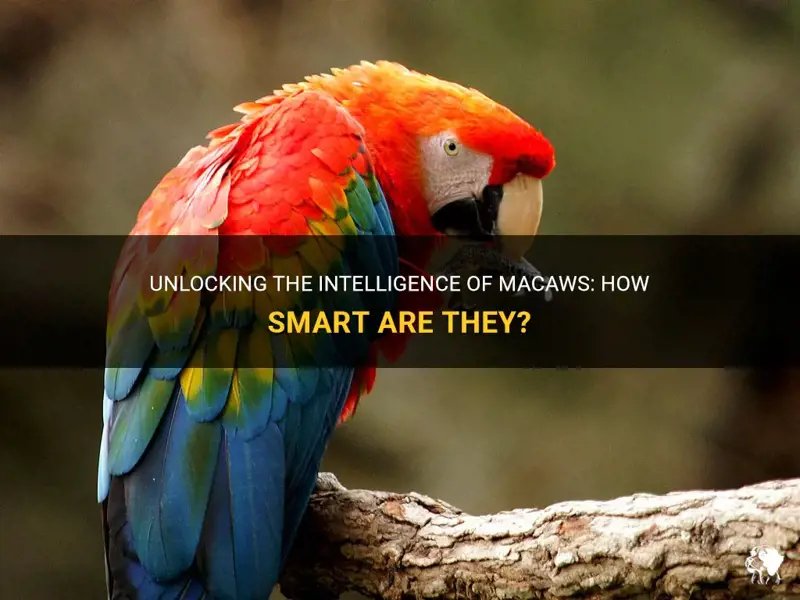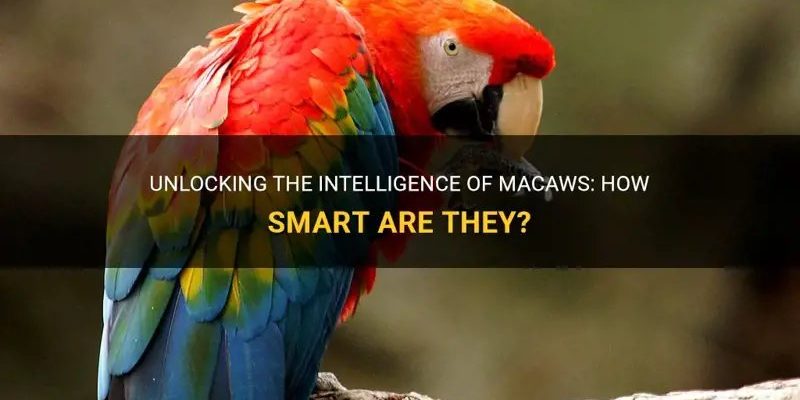
Imagine a macaw as the wise sage of the bird world. They can solve puzzles, adapt to new environments, and even learn tricks that would impress any dog owner. Just like humans, their intelligence is multi-faceted; it involves problem-solving skills, social interactions, and emotional understanding. Learning about how smart macaws really are can deepen our appreciation of these birds as pets and companions.
So, let’s dive into the fascinating world of macaw intelligence—how they think, behave, and what that means for their care.
Understanding Macaw Intelligence
When we talk about macaw intelligence, we’re really discussing a mix of different abilities. This includes their capacity for problem-solving, social interactions, and even emotional understanding. Unlike some animals, macaws display behaviors that suggest they can think critically about situations, adapt to changes, and engage in complex social dynamics.
One of the most fascinating aspects of macaw intelligence is their problem-solving skills. Imagine a macaw trying to open a tightly sealed container. Instead of giving up, they’ll often try various methods until they find one that works. They might peck, twist, or even use their beaks to pry it open. This ability to experiment and learn from their mistakes shows a level of intelligence that many people might not expect from a bird.
Moreover, macaws are social creatures. They thrive on interaction with other birds and humans. This need for socialization is a sign of their intelligence. They recognize individuals, remember past experiences, and often develop strong bonds. Think of it like having a group of friends; each macaw has its own personality and unique relationship with others, which reflects their understanding of social cues and dynamics.
Macaws and Problem Solving
Curious about how macaws tackle challenges? These birds are clever, often coming up with innovative solutions to get what they want. For example, if a toy is too difficult to access, a macaw might experiment with different strategies—like moving other objects around or even using their beak in unexpected ways.
Here’s a fun little scenario: let’s say you have a treat hidden inside a puzzle toy. A macaw might first try to poke it with its beak, then, if that doesn’t work, they might push it around, shake it, or even try to figure out how to unscrew it. This willingness to engage with their environment shows a level of reasoning similar to some mammals.
In studies, macaws have demonstrated what’s known as insightful problem-solving—where they suddenly seem to understand what to do, rather than just trial and error. This ability shows that they can think ahead, making predictions about the outcome of their actions, much like how a child learns through play.
Communication Skills
Macaws are not just good at solving problems; they’re also fantastic communicators. Their vocalizations can range from loud squawks to softer chirps, each with its unique meaning. Think of them as having their own language. They use sounds to express everything—from excitement and fear to contentment and dissatisfaction.
Interestingly, macaws can also mimic human speech and sounds. This isn’t just a party trick; it shows their ability to understand context. For example, if a macaw learns to say “hello” every time someone enters the room, they’re not just repeating what they’ve heard; they’re engaging in a social interaction. They learn that certain words can elicit reactions, making them even more eager to communicate.
Moreover, their body language is another vital part of how they express themselves. You might notice a macaw fluffing its feathers or tilting its head. These are signs that express curiosity, happiness, or even discomfort. A good owner will recognize these cues, which makes communication between bird and human even richer.
Social Intelligence in Macaws
Macaws are incredibly social animals, often living in large, complex flocks in the wild. This social structure contributes to their impressive social intelligence. They engage in various social behaviors, such as grooming each other, which helps to strengthen bonds within their group.
When you watch a flock of macaws interact, it’s like watching a well-choreographed dance. They communicate through vocalizations, body language, and even through physical touch. These interactions are crucial for their emotional well-being. Just as humans thrive on relationships, macaws need social connections to feel secure and happy.
In a pet setting, this means that if you’re thinking about getting a macaw, consider the importance of companionship. Having more than one bird can help meet their social needs, or be prepared to spend lots of quality time with your feathered friend. A lonely macaw can become stressed or develop behavioral issues, which can be tough to manage.
Emotional Awareness in Macaws
You might be surprised to learn that macaws also exhibit a degree of emotional intelligence. They can feel a range of emotions and often display empathy towards other birds or their owners. This emotional awareness is showcased in their reactions to situations. For example, if one macaw seems distressed, others may display concern by getting closer or vocalizing in a softer tone.
Understanding this emotional depth is essential for potential owners. A macaw can read your body language and mood, and they often respond in kind. If you’re cheerful and upbeat, they might mirror that energy. Conversely, if you’re feeling down, your macaw might seem quieter or less playful. Recognizing and responding to their emotional cues helps build a stronger bond between you and your pet.
Additionally, macaws are known to show signs of affection. They may nuzzle against you, preen your hair, or even try to “talk” to you in their way. These interactions strengthen your relationship and highlight their need for companionship and understanding.
Training and Learning with Macaws
Given their intelligence, macaws can also be trained to do a variety of tricks and behaviors. Training a macaw isn’t just about teaching them to perform on command; it’s a way to engage their minds and keep them stimulated. Positive reinforcement works wonders here. By rewarding them with treats or praise when they learn something new, you encourage them to think and problem-solve.
Training sessions can be a fun and fulfilling experience for both you and your macaw. It’s an opportunity to bond while also giving them the mental exercise they crave. Think of it as a workout for their brain, much like how humans enjoy puzzles or games. Training can cover everything from simple behaviors like “step up” to more complex tricks, like playing fetch.
Consistency and patience are key. Remember, every macaw learns at its own pace. Some may pick up tricks quickly, while others might take a bit longer. The joy is in the process, and every little success is worth celebrating.
In summary, macaws are not just colorful creatures; they’re highly intelligent beings with rich emotional lives and complex social dynamics. From their impressive problem-solving abilities to their profound social interactions, these birds remind us that intelligence comes in many forms. If you’re considering a macaw as a pet, remember their need for socialization, emotional engagement, and mental stimulation.
By understanding how smart macaws are, you can create a more fulfilling environment for them—one that nurtures their body and mind. Whether you’re building a bond through training or simply enjoying their company, you’ll find that these birds have a lot to offer. Embrace their wisdom, and you may find that you’ll learn just as much from them as they do from you.

